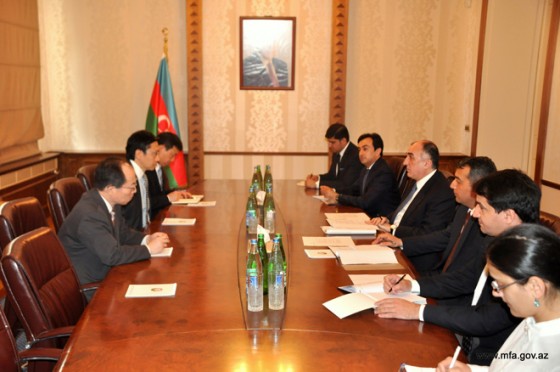
Japan supports the settlement of the Nagorno-Karabakh conflict based on UN Security Council resolutions, the message of the Foreign Ministry of Azerbaijan said May 5.
Japan’s support for Azerbaijan’s territorial integrity was expressed by the country’s special representative for Central Asia and the Caucasus Akira Muto in a meeting with the Minister of Foreign Affairs of Azerbaijan Elmar Mammadyarov.
Azerbaijani minister said that the occupied Azerbaijani territories should be liberated and Armenian armed forces should be withdrawn from these areas.
The conflict between the two South Caucasus countries began in 1988 when Armenia made territorial claims against Azerbaijan. As a result of the ensuing war, in 1992 Armenian armed forces occupied 20 percent of Azerbaijan, including the Nagorno-Karabakh region and seven surrounding districts.
The two countries signed a ceasefire agreement in 1994. The co-chairs of the OSCE Minsk Group, Russia, France and the US are currently holding peace negotiations. Armenia has not yet implemented the UN Security Council’s four resolutions on the liberation of the Nagorno-Karabakh and the surrounding regions.
Issues of bilateral cooperation in energy, agriculture, high technologies and non-oil sector were discussed during the meeting.
Mammadyarov noted the importance of high-level visits in the development of relations.
Akira Muto in turn said that Japan wants to further develop relations with Azerbaijan in the aforementioned areas.
Exchange of views on cooperation in GUAM + Japan format also took place during the meeting.
GUAM was established by post-Soviet countries in 1997 during a summit of the EU countries in Strasburg.
In 1999, Uzbekistan joined GUAM but left it four years later. In 2006, the first summit of this format held in Kiev decided to declare GUAM an international organization with a new name: GUAM Organization for Democracy and Economic Development.
Trend
